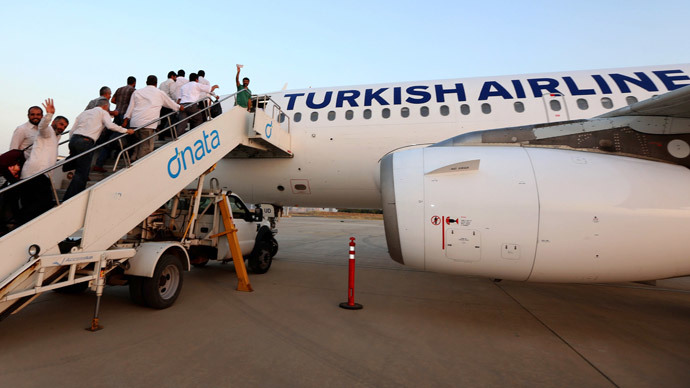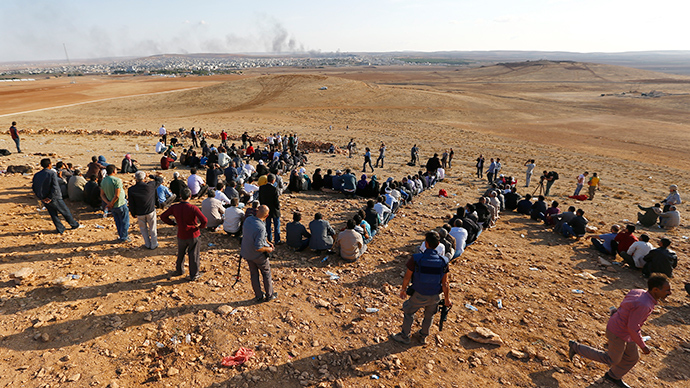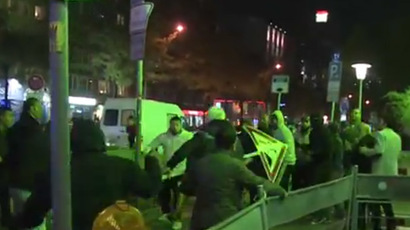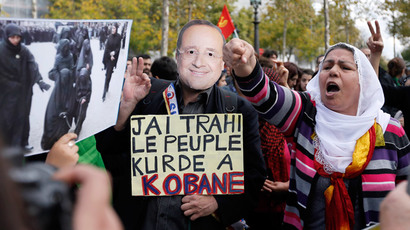Turkish Airlines conducts probe after panic over Arabic inscriptions on engines

Turkish Airlines was forced to examine apparently random Arabic scripts found on the engines of several of its planes over the weekend, prompting fears that Islamic State militants had been defacing the jets.
However, what people initially suspected to be disturbing
propaganda messages courtesy of the Islamic State (IS, formerly
ISIS/ISIL) were actually blessings for abundance and fertility.
Staff, unable to read the inscriptions, feared that IS may have
been responsible, according to the Turkish website,
airporthaber.com.
After one jet was found with the markings at Istanbul’s Atatürk
Airport – Europe’s fifth busiest airport – three further planes
were discovered to have similar markings – all of which had
arrived from different starting points.
A spokesman for Turkish Airlines told Reuters on Wednesday that
there had been no need for concern – at least, over the nature of
the markings. Their very existence has, however, generally raised
questions about security.
“An investigation has been launched into this issue. We don't
think there is a link with a terror organization, nor was there a
threat to our flights,” the spokesman stated.
However, the people responsible have not been identified because
of a lack of functioning security cameras operating in the areas
where the planes were stationed.

Fears spiked amid a siege by IS fighters on the northern Syrian
town of Kobani, which is just over the border from Turkey.
Turkey is especially vulnerable to IS plots because of its
geographical vicinity to the conflict, and “foreign fighters”
have been going via Istanbul to reach Syrian and Iraqi hotbeds of
insurgency.
It is currently located right next to one of the major cities in
the conflict, and on October 10 the Syrian Observatory for Human
Rights stated:
“They have taken at least 40 percent (of the town),”
according to the head of the monitoring group, Rami Abdulrahman,
who spoke to Reuters.
IS militants have seized control over some of its eastern areas
and smaller areas in the south.
The group has captured territories in both countries and last
Saturday protests swept through several predominantly Kurdish
cities in Turkey because of a perceived lack of action from the
Turkish government in handling the IS problem.
However, the protests have not just been confined to Turkey and
an increased fear of terrorism has swept the continent.
Tens of thousands of protesters took to the streets of Dusseldorf, Paris
and London last Saturday to call for greater action to protect
the Syrian border town.














